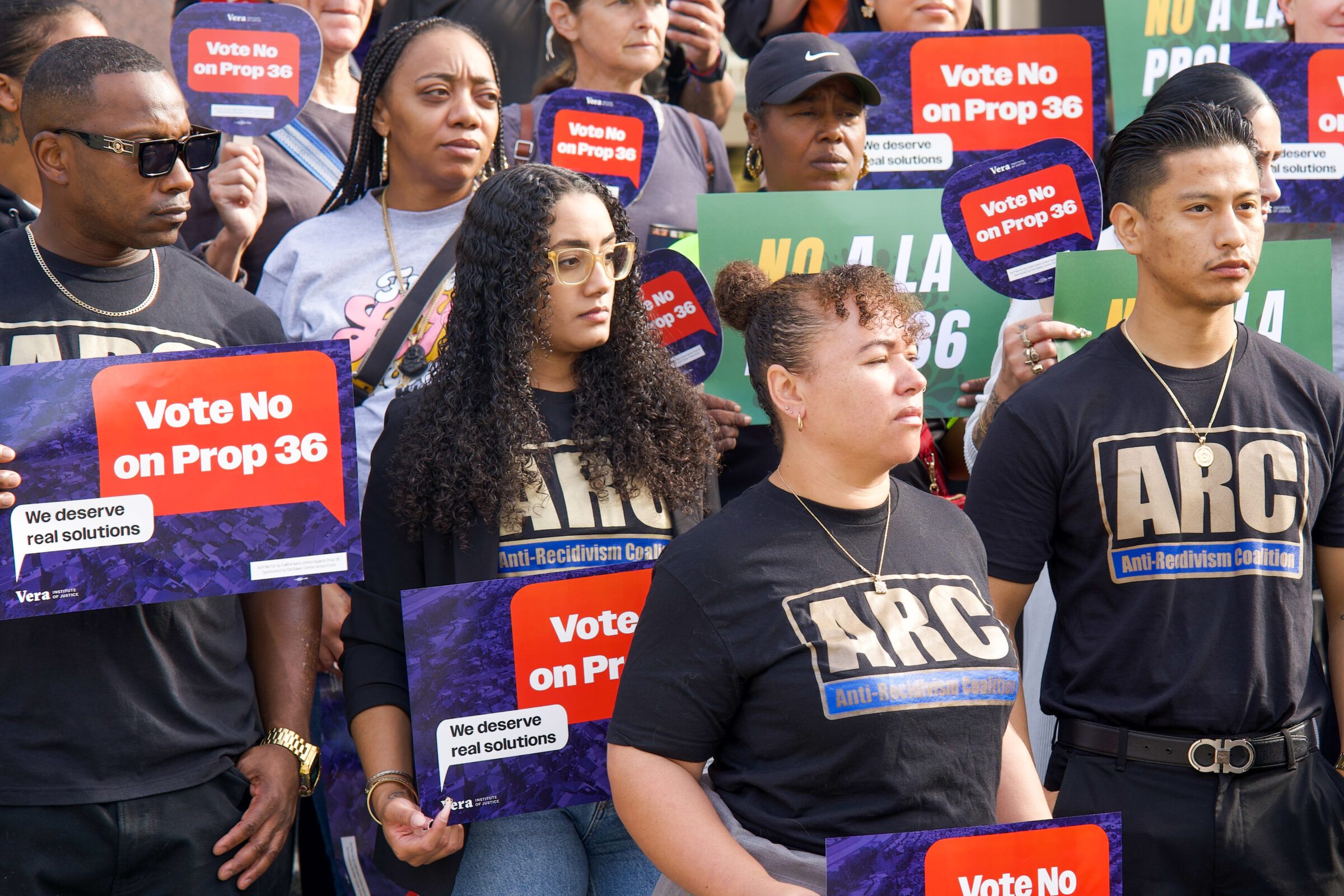The passage of Prop 36 will also lengthen the sentences of some existing felonies up to three years if the crime, like felony theft causing property damage, was committed together by three or more people. It will also require that felony convictions for selling drugs be served in state prisons, whereas currently some of those sentences are served in county jails. The measure will also create a new category of offense, a “treatment-mandated felony,” which carries a prison sentence of up to three years for people with previous drug convictions who fail to complete court-ordered treatment.
Prop 36 reverses some of the changes California voters made a decade ago when they passed Prop 47, which made some felonies misdemeanors in order to reduce severe overcrowding in the state’s prisons. The state estimates that the reduced incarceration from Prop 47 helped save $800 million over the past decade, the majority of which was reallocated to mental health and drug treatment services.
Advocates who supported those reforms a decade ago are now bracing for a reversal of those trends, as the state’s own analysis predicts that costs associated with increased punishment and prison will soar as state funds allocated to treatment services fall with the passage of Prop 36. While this year’s ballot measure was put forth as a way to make communities safer, opponents worry it will bring a drop in services that erodes community safety.



Guess they need some more free labour over there.